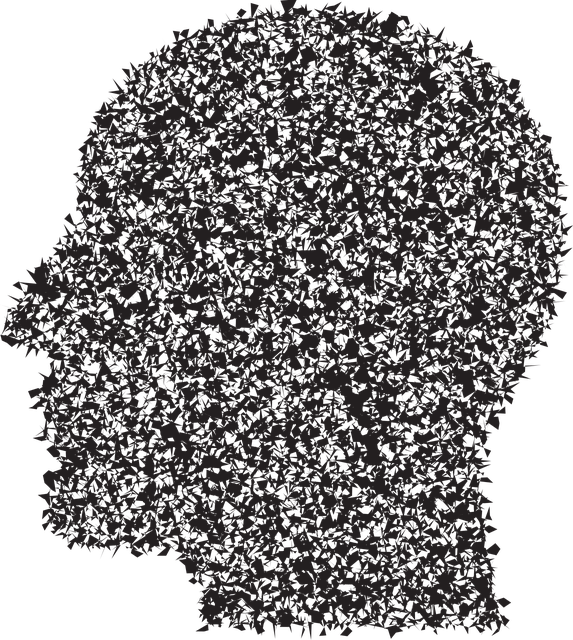Adjustment Disorder, a common yet often overlooked mental health issue affecting all ages, particularly adolescents and young adults during significant life transitions, causes distress and maladjustment expressed through symptoms like persistent sadness, irritability, sleep disturbances, and changes in appetite. Public awareness campaigns are crucial for early intervention by highlighting these signs and reducing stigma, empowering people to seek therapy, such as cognitive-behavioral therapy. Interactive initiatives like Stress Management Workshops encourage resilience building and proactive stress management, while strategic campaign messaging tailored to specific demographics on popular social media platforms fosters behavioral change and community engagement. Effective public awareness efforts can significantly impact the management of Therapy for Adjustment Disorder and prevent long-term negative effects on mental health and societal well-being.
Public awareness campaigns play a pivotal role in shedding light on mental health issues like Adjustment Disorder, affecting individuals across society. This article explores the profound impact of these campaigns in educating communities and offering support. We delve into effective strategies for developing and implementing initiatives that promote understanding and encourage seeking therapy for Adjustment Disorder. By fostering empathy and breaking down stigma, these efforts can lead to improved outcomes and enhanced social cohesion.
- Understanding Adjustment Disorder and Its Impact on Society
- The Role of Public Awareness Campaigns in Education and Support
- Strategies for Effective Campaign Development and Implementation
Understanding Adjustment Disorder and Its Impact on Society

Adjustment Disorder, often overlooked, is a mental health condition that significantly impacts individuals and society at large. It manifests as a struggle to cope with significant changes or transitions in life, leading to feelings of distress and maladjustment. This disorder can affect people of all ages but is commonly observed in adolescents and young adults facing major life events such as moving schools, changing jobs, or experiencing the loss of a loved one. The impact extends beyond the individual, creating ripples in their social circles and communities.
Understanding Adjustment Disorder is crucial for developing effective public awareness campaigns. By highlighting the signs and symptoms, such as persistent sadness, irritability, and changes in appetite or sleep patterns, these campaigns can encourage early intervention. Therapy plays a pivotal role in managing the disorder, focusing on mood management techniques and fostering inner strength development. Additionally, preventing burnout—a common consequence of prolonged adjustment difficulties—should be a key message, emphasizing the importance of seeking support to avoid long-term negative effects on mental health and overall societal well-being.
The Role of Public Awareness Campaigns in Education and Support

Public awareness campaigns play a pivotal role in educating communities about mental health disorders, including Adjustment Disorder, and offering support to those affected. These campaigns serve as powerful tools to dispel myths, reduce stigma, and foster empathy, enabling individuals to recognize symptoms and seek appropriate help. By providing accessible information on therapy options, such as cognitive-behavioral therapy for Adjustment Disorder, campaigns empower people to take charge of their mental well-being.
Through interactive initiatives like Stress Management Workshops Organization and self-care advocacy, awareness campaigns encourage resilience building and proactive stress management. They create safe spaces where individuals can share experiences, learn from one another, and develop effective coping strategies. By integrating Self-Care Practices into daily routines, these campaigns promote holistic mental health, ensuring that people have the tools to navigate challenges with greater ease and confidence.
Strategies for Effective Campaign Development and Implementation

Developing an effective public awareness campaign requires a strategic approach to ensure its success and impact. One key strategy is to identify the target audience and tailor the message accordingly. Understanding the demographics, psychographics, and behaviors of your intended recipients is crucial for delivering relevant content that resonates with them. For instance, when raising awareness about Therapy for Adjustment Disorder, the campaign might focus on adolescents and young adults, utilizing social media platforms popular among this age group.
Additionally, integrating interactive elements can enhance engagement. This could include online webinars or virtual workshops focusing on practical Conflict Resolution Techniques and Mood Management strategies. Encouraging participants to share their experiences through user-generated content or providing resources for further learning fosters a sense of community and encourages behavioral change. Furthermore, partnering with influential organizations or renowned individuals in the field can add credibility and reach a broader audience, making the campaign memorable and impactful, especially when promoting initiatives like Stress Management Workshops Organization.
Public awareness campaigns play a pivotal role in educating society about mental health issues like adjustment disorder. By providing information on symptoms, causes, and available therapy for adjustment disorder, these campaigns foster understanding and reduce stigma. Through effective strategies that engage diverse audiences, we can enhance support systems and ensure individuals affected by this condition receive the necessary help. Empowering communities with knowledge is a crucial step towards creating a more inclusive society where mental well-being is prioritized.














